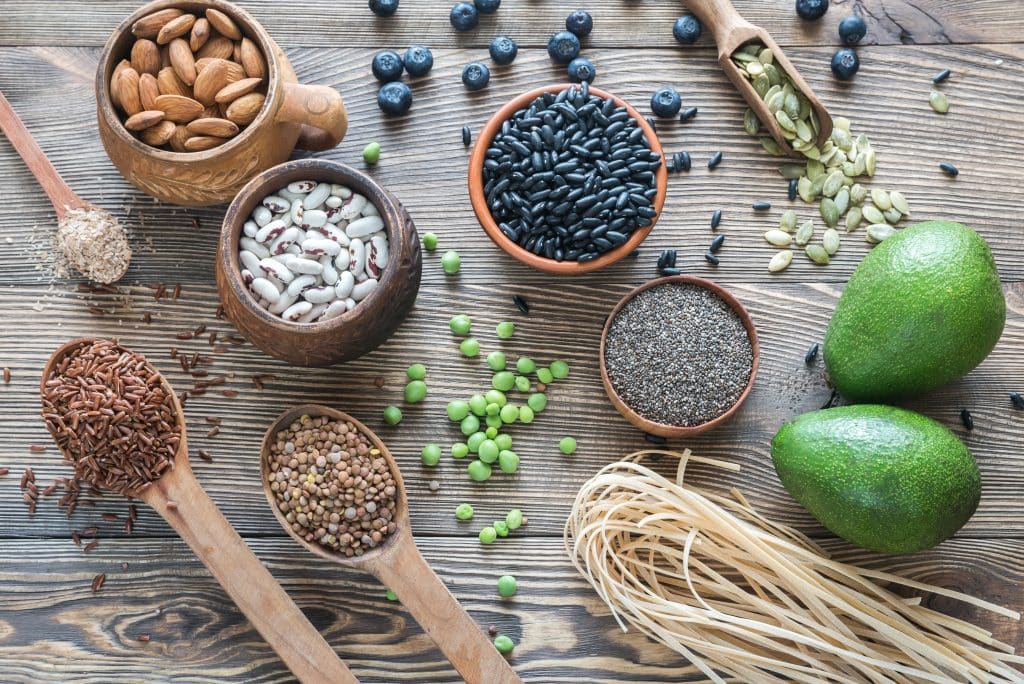In recent years, there has been a growing awareness of the importance of dietary fiber in maintaining good health. Fiber is a type of carbohydrate that the body cannot digest, but it plays a vital role in maintaining a healthy digestive system and overall well-being. Despite this, many people still struggle to get enough of this nutrient. So in order to help you prioritize it, this article will explore the benefits of adding more fiber to your diet and provide some practical tips for increasing your intake.
Contents
The Different Types Of Dietary Fiber

When exploring the benefits of fiber it is essential to understand that not all fibers are created equal. There are two main types of dietary fiber – soluble and insoluble. Soluble fiber dissolves in water and forms a gel-like substance in the intestines, which can help lower cholesterol levels and regulate blood sugar. Insoluble fiber, on the other hand, does not dissolve in water and adds bulk to stool, helping to promote regular bowel movements.
Incorporating both types of fiber into your diet is essential to maintain optimal digestive health. And knowing the difference between these two can help guide your food choices and ensure you’re getting the right amount of each type.
Benefits Of Adding More Fiber To Your Diet
After determining the types of fiber you should be consuming, it’s important to understand how adding more to your diet can improve your health. The following are some of the different benefits this type of nutrient has to offer:
Improved Digestion

If you are someone who suffers from digestion issues, incorporating more fiber into your diet may be the answer to your problems. Fiber has the power to promote healthy bowel movements and improve the overall function of your digestive system. Unlike other nutrients, the body cannot fully digest insoluble fiber, so it acts as a sort of sweeping mechanism, cleaning out unwanted waste and toxins in the process.
This can be a major benefit for those who suffer from digestive issues such as constipation, bloating, and diarrhea. Furthermore, a high-fiber diet can also help reduce your risk of developing other digestive conditions, such as irritable bowel syndrome (IBS) and diverticular disease.
Lower Cholesterol Levels

Adding more fiber to your diet can also work wonders for your cholesterol levels. Not only can it help reduce your LDL (or “bad” cholesterol), but it can also lower your overall risk of heart disease. This is because fiber helps bind with the cholesterol in your gut, preventing it from being absorbed into your bloodstream.
However, it is important to note that soluble fiber is especially effective at lowering cholesterol levels. By incorporating more of it into your diet, you can make a significant impact on your heart health. So next time you’re planning your meals, be sure to add some high-fiber options to your plate.
Reduce Inflammation

Inflammation is a natural response of the body to fight off infections and heal tissues. However, chronic inflammation can lead to serious health problems such as heart disease, cancer, Alzheimer’s, and diabetes. One of the ways to combat inflammation is by increasing fiber intake in your diet. Research shows that fiber-rich diets have anti-inflammatory effects on the body by reducing the level of pro-inflammatory molecules.
Moreover, fiber promotes the growth of beneficial bacteria in your body that help regulate the immune system and prevent autoimmune diseases, which can be a great way to manage inflammation and reduce the risk of developing other chronic illnesses.
Aid Weight Management

Fiber can become your best ally when it comes to weight management. This nutrient takes longer to digest, making you feel fuller for longer periods of time. Therefore, it could be the key to avoiding those extra snacks that sabotage any weight loss plan. Not only that, but fiber also regulates your digestion and helps you avoid constipation. The goal is to aim for a balance between soluble and insoluble fiber in your meals.
It may require some conscious efforts to increase your fiber intake, but the benefits it brings to your health make it worth the effort. Consider it as an investment in your overall well-being, starting with managing your body weight.
Improve Gut Microbiome

Your gut microbiome is the population of bacteria and other microorganisms that live in your digestive system. Its health has been linked to a number of diseases, including obesity, Type 2 diabetes, and inflammatory bowel disease (IBD), among others. Research shows that adding more fiber to your diet can have a positive effect on the gut microbiome by encouraging the growth of beneficial bacteria.
It does this by providing the bacteria with essential nutrients and creating a more balanced environment in your gut. In this way, fiber can help you maintain a healthy gut, which is vital to your overall health.
Tips For Adding More Fiber To Your Diet

With all those benefits to be gained from adding fiber to your diet, it’s time to start incorporating this nutrient into your meals. Here are some tips that could help you make sure you’re getting enough fiber:
• Start the day with a high-fiber breakfast – Add oats, nuts, seeds, or whole-grain bread to your morning meal for an added fiber boost.
• Add more vegetables to your diet – Eating more veggies is always a good idea when you’re trying to get more nutrients in your body. But they are especially helpful for getting more fiber.
• Choose whole grain options over refined grains – Make sure that the bread and pasta you buy are made with whole grains, as these will provide much more fiber than their refined counterparts.
• Add legumes to your meals – Legumes are a great way to boost your fiber intake and add more protein to your diet at the same time.
• Snack on high-fiber foods – Mix up some nuts, seeds, dried fruits, and whole grain crackers for a healthy snack that provides much-needed fiber.
Adding more fiber to your diet is essential in maintaining good health, and the tips above will help you get started on the right track. So don’t forget to include this nutrient in your meals!
Enjoy The Benefits Of Adding More Fiber To Your Diet!
It’s clear that the benefits of adding more fiber to your diet stretch far beyond just helping you stay regular. From improving your heart health to aiding with weight management, fiber is a vital nutrient for anyone looking to maintain a healthy lifestyle. If you haven’t been getting enough of it in your diet, now is the time to start! With just a few simple changes, you can ensure you’re getting all the fiber your body needs!


